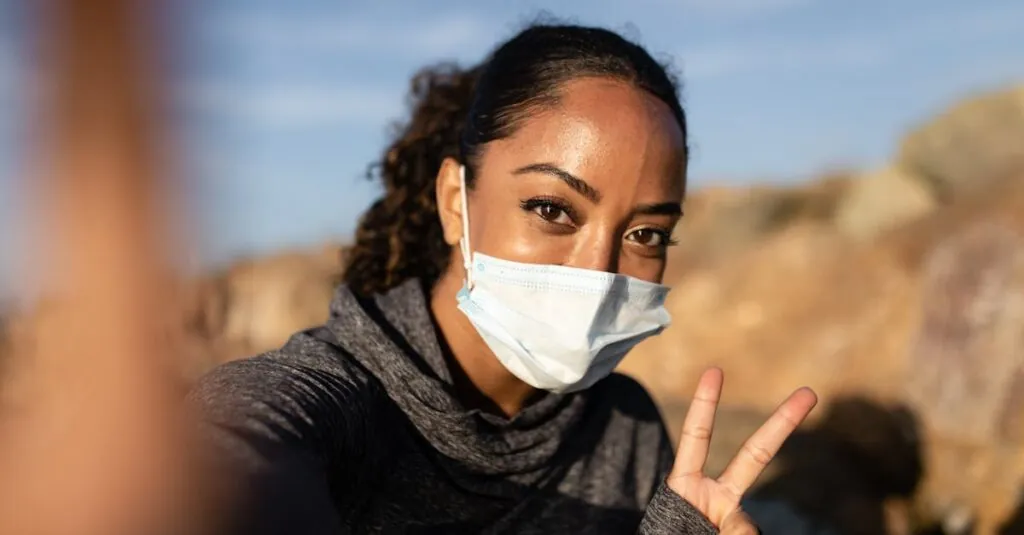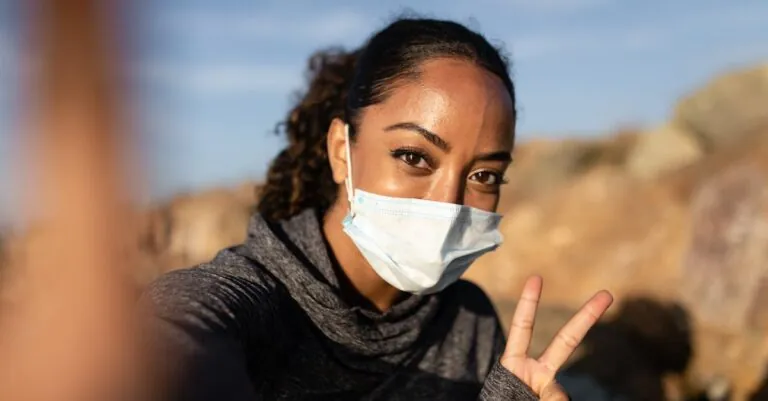In a world where adventure calls from every corner, solo nomads are living the dream—exploring new cultures and savoring freedom. But wait! Before they throw caution to the wind and embark on their next journey, there’s one crucial detail they can’t overlook: safety. After all, no one wants their travel tales to end up as cautionary tales.
Table of Contents
ToggleUnderstanding Solo Nomad Safety
Solo nomad safety plays a crucial role in ensuring enjoyable travel experiences. Prioritizing safety minimizes risks, allowing travelers to focus on exploration and cultural immersion.
Importance of Safety for Solo Travelers
Safety significantly impacts the ability to explore new environments confidently. Engaging with local communities becomes possible when travelers feel secure in their surroundings. Avoiding potential dangers enhances the overall journey and fosters richer interactions. Situational awareness remains vital, as it aids in recognizing and responding to risks. Preparedness for emergencies ensures that solo travelers can manage unforeseen events effectively. Prioritizing safety ultimately leads to a satisfying and enriching travel experience.
Common Risks Faced by Solo Nomads
Solo nomads encounter various risks while traveling. Theft represents one of the most prevalent concerns, with belongings vulnerable in crowded places. Additionally, scams targeting tourists occur frequently, highlighting the need for vigilance. Navigational challenges may arise in unfamiliar territories, making it harder to find safe routes. Isolation can also increase the risk of dangerous situations, requiring travelers to maintain strong communication. Health emergencies remain unpredictable but pose a significant threat to solo explorers. Recognizing these risks equips nomads with the knowledge to navigate adventures securely.
Preparation for Safe Solo Travel
Preparing for solo travel involves thorough planning and awareness of potential risks. This ensures enjoyable explorations while prioritizing personal safety.
Researching Your Destination
Thoroughly researching the travel destination helps identify potential dangers and cultural norms. Familiarity with local laws reduces the risk of inadvertent violations. Use online resources, such as travel advisories from the U.S. State Department, to stay updated on safety recommendations. Checking local news outlets provides insights into ongoing issues. Engage with travel forums to hear from experienced solo travelers about their personal safety tips. Understanding common scams enhances one’s ability to avoid them during the trip.
Packing Essentials for Safety
Packing essential items supports a safer travel experience. Include a first aid kit stocked with medicine and bandages for minor health emergencies. A portable charger ensures devices remain powered for navigation and communication. Opt for a money belt or hidden pouch to keep cash and important documents secure. Consider versatile clothing that allows for comfort while remaining discreet. Incorporate items like a whistle or personal alarm that can deter potential threats. Always carry a copy of emergency contacts and local consulate information for quick access in case of emergencies.
Staying Safe While Traveling
Prioritizing safety while traveling solo enhances experiences and fosters engagement with local communities. This section offers practical tips to ensure a secure adventure.
Tips for Safe Accommodation
Selecting safe accommodation remains crucial for solo nomads. Research options thoroughly, focusing on areas with good reviews and ratings. Consider hostels with 24-hour security and private rooms for comfort. Booking through reputable platforms can provide an added layer of protection. Trust instincts while assessing neighborhoods, especially at night. Upon arrival, keep doors locked and use hotel safes for valuables. Inform someone about your accommodation details for extra peace of mind.
Navigating Local Cultures and Customs
Understanding local cultures and customs significantly enhances safety and enjoyment. Research traditions and etiquette specific to each destination. Respecting customs shows appreciation for local values and can prevent misunderstandings. Engage with locals for insights and advice about safe practices. Observing local behavior helps identify potential risks. When interacting, choose public places and maintain awareness of surroundings. Effective communication reduces the likelihood of scams or misinterpretations, contributing to overall safety while traveling solo.
Emergency Situations and Response
Emergency situations can arise unexpectedly during solo travel. Preparation and quick response strategies enhance safety for nomads.
Handling Emergencies Abroad
Facing emergencies abroad requires staying calm and acting quickly. First, assess the situation to determine the best course of action. Contact local authorities immediately if safety is compromised. For personal injury, seek medical assistance right away. Familiarizing oneself with emergency numbers for each destination streamlines this process. It’s crucial to understand local protocols; knowing where the nearest hospital is can save time. Carrying a portable charger ensures phones remain functional when communicating with emergency contacts. This attention to detail can make a significant difference in outcomes.
Resources for Solo Nomads in Distress
Numerous resources exist for solo nomads needing assistance. Many countries offer consulate services that provide support during emergencies. Researching contact information and locations before traveling aids in quick access. Online platforms, such as travel forums, share real-time advice from experienced travelers in distress. Apps designed for traveler safety can also help navigate unfamiliar environments. Understanding local customs enhances responses to emergencies; knowing how locals react to situations can prove advantageous. Engaging with community resources fosters connections that can provide safety support in challenging times.
Building a Safety Network
Solo nomads can enhance their safety by building a network of contacts and resources. Establishing connections with others can provide crucial support during travels.
Connecting with Other Travelers
Connecting with fellow travelers creates opportunities for shared experiences and safety tips. Engaging in online communities, like travel forums or social media groups, fosters relationships with like-minded individuals. Attending meetups or local events helps in forming friendships, which can improve overall security. Identifying travel partners for specific activities can minimize feelings of isolation. Seeking out fellow travelers for company during outings adds an extra layer of safety. Sharing itineraries and establishing check-in routines with new friends ensures accountability.
Utilizing Technology for Safety
Utilizing technology offers various tools that enhance safety while traveling solo. Mobile apps provide real-time information about safe routes, local hazards, and emergency contacts. Downloading travel safety applications helps in keeping important resources accessible. GPS tracking apps enable friends or family to monitor locations, ensuring added security. Social media platforms allow for updates on travel progress and changes in plans. Offline maps also assist in navigation without relying on cellular connections. Accessing online resources about the local area enhances preparedness for potential risks.
Solo nomad safety is essential for a fulfilling travel experience. By prioritizing safety measures and being aware of potential risks, travelers can fully immerse themselves in new cultures without unnecessary worries. Preparation and research lay the groundwork for secure adventures while engaging with locals fosters deeper connections.
Building a safety network and utilizing technology can provide added support and assurance. Ultimately, when solo nomads feel secure in their surroundings, they open the door to richer experiences and unforgettable memories. Embracing the adventure with a focus on safety ensures that the journey remains enjoyable and transformative.









